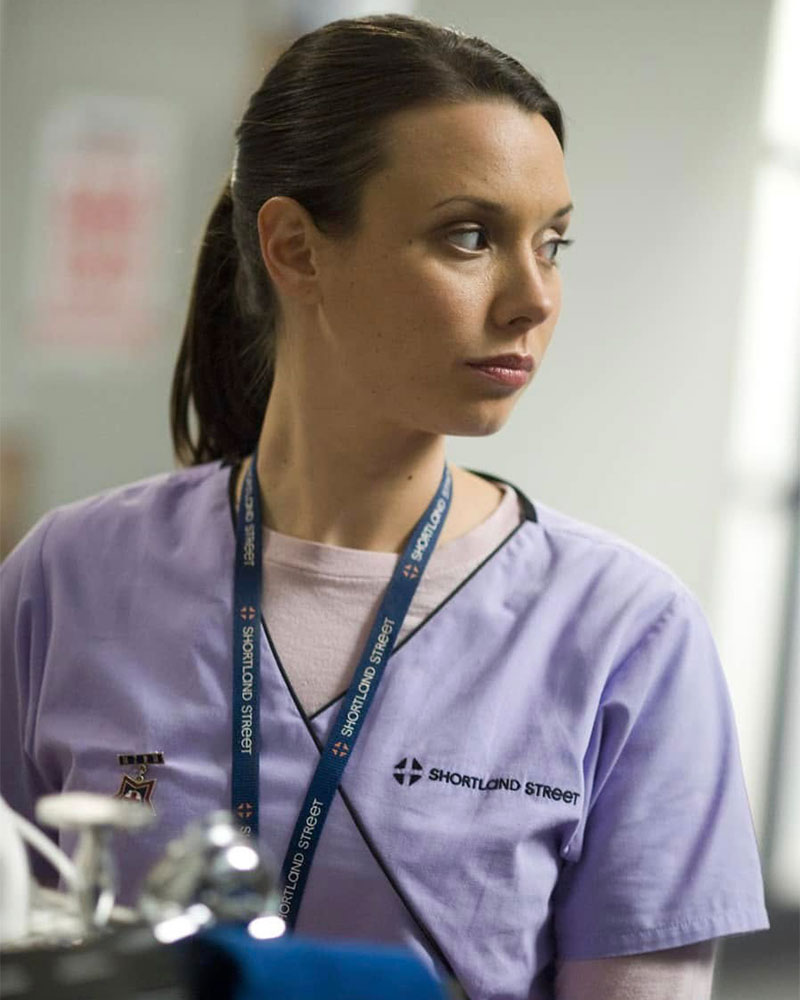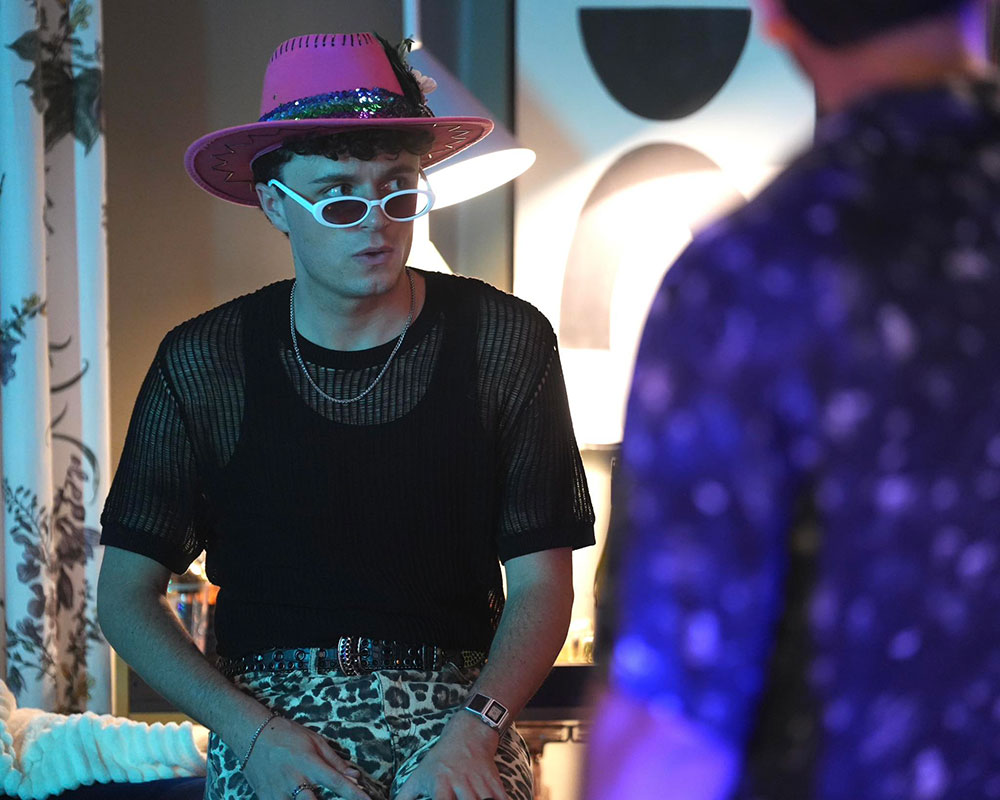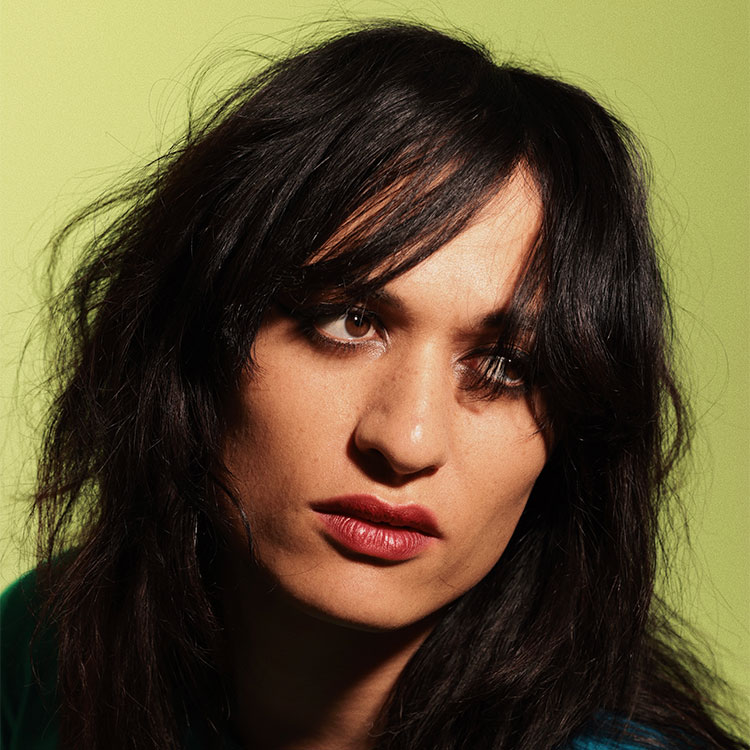Holly Hudson is an actor and screenwriter who also works in the Shortland Street writer’s room. She’s written for Ensemble about injectables and acting, and the lesbian renaissance of reality TV.
A few weeks ago, I saw Maia Jeffries walking through a Westfield Mall in Auckland. And no, I don’t mean Anna Jullienne the actor – I saw resident of Ferndale, charge nurse, daughter of Yvonne and murderer at large, Maia J. I took this as an omen of good things coming my way (it was).
As a writer on Shortland Street I’ve met pretty much the whole shebang of iconic cast from the show – Chrissy Warnie, TK, Sarah, the revolving doors of IT guys and receptionist girls. I even did a short film with Rach McKenna. But Maia/Anna is someone who I’d be nervous to talk to because the earnest reality is, she influenced my sense of self.
In 2004, Maia burst forth onto a grim spectacle of queerness in New Zealand media and she was an instant hit. This was before gay marriage was legalised, when homosexuality was mostly something freaks did on K Rd or maybe you had an aunty with a flatmate that was only let inside at Christmas. I was in primary school, and there were three things I knew: wear a hat in the sun, don’t pat stranger’s dogs and never, ever, let someone call you gay.
However, the world couldn’t fight the oily slope into acceptance that it was sliding down: The L Word, Mean Girls and Civil Union in New Zealand all happened in the same year. Maia Jeffries was part of our own cultural revolution on the show that is as revered as it is reviled by New Zealanders.

We’ve come a fair way since then, but there is a continuous debate that I still hear in theatre foyers, on TikTok reels and at thespian parties: should that straight actor be playing gay? Would this show be better with a queer lead? Has Shortland Street gone to the gay dogs?
Writer/actor Jess Sayer, who plays Maeve Mullens on Shorty, believes her character serves an important purpose after growing up with minimal exposure to queerness in the media. “I think it was just a complete lack of queer representation in anything I consumed media wise growing up. It was literally never something I realised was an option. I just assumed everyone dated boys and wasn't really that into it. I didn't understand what I was feeling.”
Sayer has also had contact with queer fans that use the show as a test run with family. “I had a lot of contact with watchers who used the Nicole and Maeve storylines to broach coming out to their families. Like, sitting and watching Shorty together, seeing queerness normalised like that, helped facilitate conversations and understanding.”

What I get stuck on, is how differently Jess Sayer and Anna Jullienne have engaged with fans during their time on the show. The role of the actor has changed – social media means we know who they are and what they’re doing. This parasocial relationship has given audiences a false sense of ownership and intimacy that didn’t exist in 2004. It’s exciting to me that lesbian Maeve Mullens is being played by lesbian Jess Sayer. I don’t know if a straight actor would devalue my experience of the show – maybe? Sexuality is a spectrum and unless an actor has publicly defined their identity, how is an audience supposed to know, anyway.
I think we can all agree cisgender actors shouldn’t play trans roles; no audience is into boring, tired and frankly offensive tropes. Awa Puna, who plays Gia Te Atakura, spoke to the deeper implications of current casting in New Zealand.
“When it comes to cisgendered men playing trans women, it can reiterate the concept that being whakawahine is just a male slapping on a wig, wearing a frock and calling it a day. But trans women aren't men playing dress-up, they're real women.
“We've seen it done quite a few times, and although these performances can be beautiful, captivating and courageous, we've rarely seen a trans person play a cisgendered role. In my mind, I think it's our responsibility as an industry to make way for voices who haven't been heard much before,” says Awa.

Peter Burman plays Sage Stewart and has the difficult job of keeping the role comic yet authentic. This I imagine can be difficult, when the tone of the show is inherently soapy drama and camp lines lend themselves to stereotype.
“When queer people are represented on TV, we often see a lot of our pain, the trauma, the hardship and while that’s real and important to acknowledge, with Sage I wanted to offer up something else. There's so much happiness, connection, and lightness in queer life too. It’s important to me that people, especially young queer people see that. That life isn’t just something to survive; it can be something you enjoy. You’re allowed joy. That’s part of our story too.”

I don’t know if you’d get these informed performances out of straight actors and you certainly wouldn’t get one out of a cis person playing Awa’s role. Writing for these actors feels special, but I don’t think the purpose of these roles is to make the lesbian in the script team feel good.
I try to keep in mind the baby gays when we storyline for these characters. I ask myself what is important for them to see and believe about themselves right now, through this show. In no means does Shortland Street get representation right every time, but I can attest to the hardworking queer directors, writers, camera people and other crew on the show who try their best to make it authentic.
As the global cultural and political landscape changes faster than I can get my head around, I think I find comfort in the gay media I grew up on. Imagine if someone told Melanie Lynskey she couldn’t act in But I’m A Cheerleader? Who are they to tell her no, when she swung the first brick in Heavenly Creatures?
I think Awa said it perfectly: “To have a non-queer person playing a queer role – a great conversation. I mean, I'm not a doctor, I haven't studied a medical degree, yet, I play one. I think in some instances, it's okay. A lot of it depends on the intention and kaupapa of the storytelling. For example, I've seen many renowned straight actors play fantastic gay roles, and vice versa. Sometimes, you couldn't think of any other person playing that role – they're simply the best person for that job.”
I’ve come to believe that it’s about the piece of work you’re trying to make. It didn’t matter to me that Anna Julienne was a straight actor playing a gay role; I only saw Maia Jefferies. If it’s a Basement show for Pride, a straight actor’s probably going to go down like a cup of cold sick in front of a gay audience. That show is meant to be for us, so somewhere in production, there should be authentic input.
Proud Voices on Screen put it perfectly: ‘No stories about us, without us.’ But perhaps that responsibility doesn’t lie entirely on the actors' shoulders.




